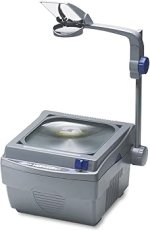Bellmeister
New member
In an age where digital presentations dominate, the Apollo APO16000 overhead projector raises an intriguing question: Are we overlooking the power of simplicity? While many educators and presenters rush toward the latest tech gadgets, this modest piece of equipment weighs in at just 12 pounds and offers a unique blend of portability and functionality that challenges our obsession with screens.
With a compact design that allows for easy transport and a built-in storage compartment, the Apollo projector seems to cater to small venues and intimate classroom settings. But does its traditional approach hold up in a world where flashy visuals and advanced interactivity are the norm? In this review, we'll dig into how this projector performs in real-world scenarios and whether it can still carve out a place in modern presentations—or if it's destined to become a relic of the past.
I'm considering purchasing the Apollo APO16000 Overhead Projector and would love your insights. I've read that it’s lightweight at just 12 lbs, which is great for portability, but how does that affect its stability during use?
In terms of picture quality, can anyone share their experience? I’m particularly curious about how well it projects images in different lighting conditions, especially in classroom settings.
Also, what about the sound quality? Does it come with built-in audio, or would I need to rely on external speakers for presentations? I want to ensure everyone can hear clearly.
Lastly, are there any potential downsides that I should be aware of? I’m looking for something reliable for small venues with about 20 people. Any advice would be appreciated!
With a compact design that allows for easy transport and a built-in storage compartment, the Apollo projector seems to cater to small venues and intimate classroom settings. But does its traditional approach hold up in a world where flashy visuals and advanced interactivity are the norm? In this review, we'll dig into how this projector performs in real-world scenarios and whether it can still carve out a place in modern presentations—or if it's destined to become a relic of the past.
Spec
| Parameter | Apollo APO16000 Projector |
|---|---|
Picture | |
Reference Price | |
Recommended Uses | Education, Home Cinema, Business |
Built-In Media | Lamp Changer, Power Cord, Projector Head |
Highlight | Sold as 1 Each. Weighs just 12 lbs. for easy portability and reliable tabletop use. Open head folds down or can be stored in built-in storage compartment. Ideal for classrooms and small venues with up to 20 people. 10" x 10" stage glass surface area. |
Screen Size | N/A - 300 Inches |
Contrast Ratio | 5000:1 |
Maximum Resolution | 1920 x 1080 |
Native Resolution | 1920 x 1080 |
Brightness | 2000 Lumen |
Display Type | projection |
Video Encoding | H.264, H.265 |
Controller Type | Button Control |
Control Method | Remote |
Wattage | 200 watts |
Connectivity Technology | HDMI |
Hardware Connectivity | HDMI |
Compatible Devices | Laptop, Gaming Console, Television, Tablet, Smartphone, Speaker |
Other Features | Portable, Lightweight |
L x W x H | 8"H |
Item Weight | 14 Pounds |
In terms of picture quality, can anyone share their experience? I’m particularly curious about how well it projects images in different lighting conditions, especially in classroom settings.
Also, what about the sound quality? Does it come with built-in audio, or would I need to rely on external speakers for presentations? I want to ensure everyone can hear clearly.
Lastly, are there any potential downsides that I should be aware of? I’m looking for something reliable for small venues with about 20 people. Any advice would be appreciated!




